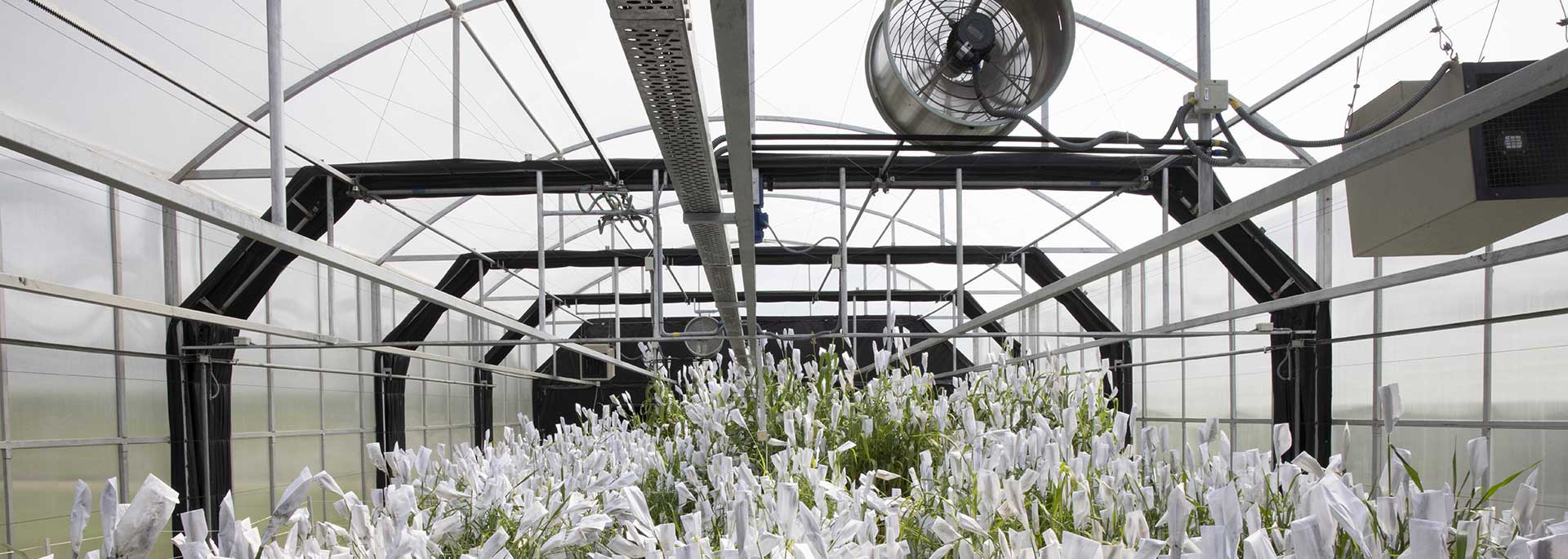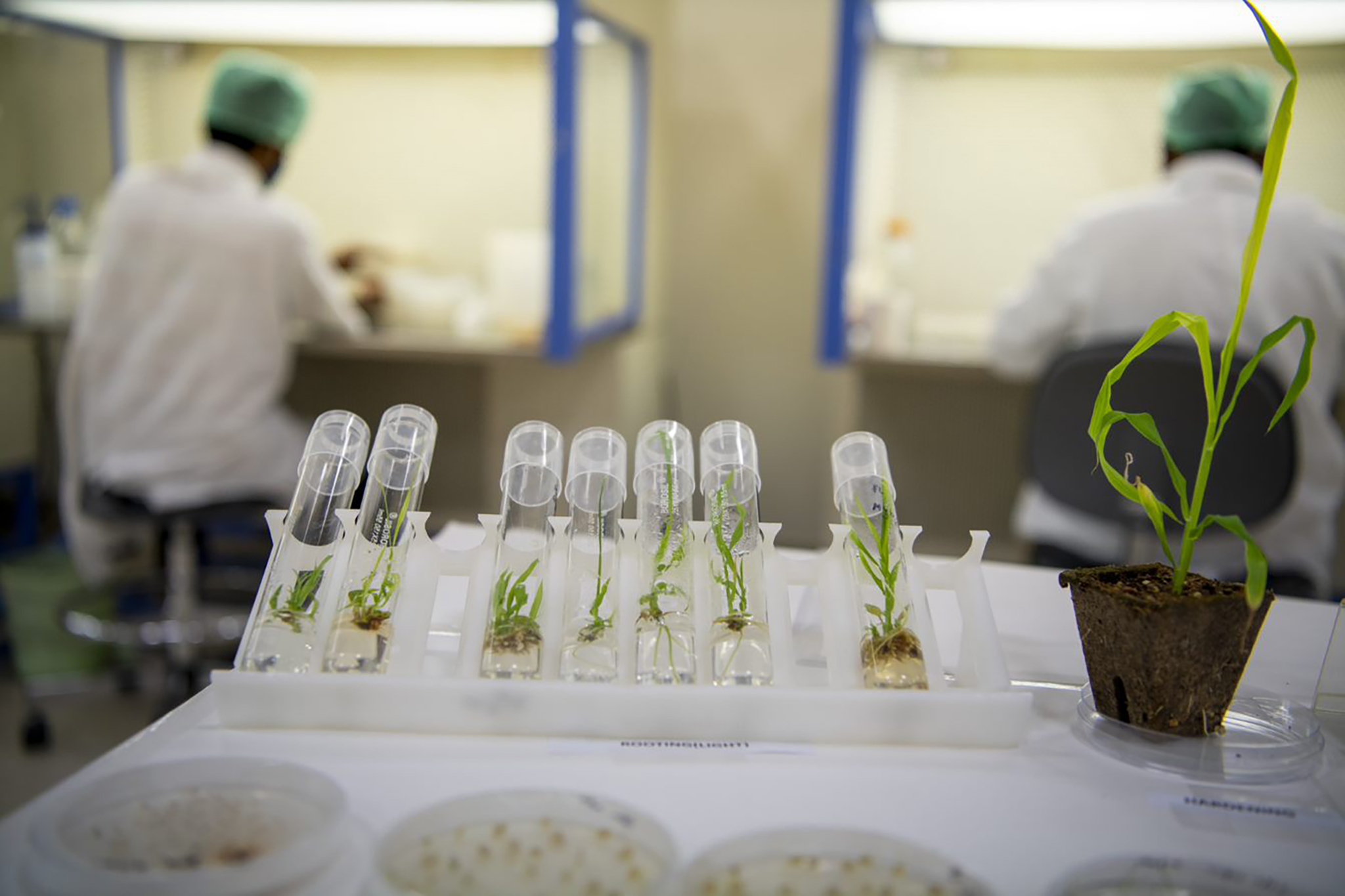
The Accelerated Crop Improvement (ACI) Program leads the development of ICRISAT’s efforts to improve dryland crop varieties for Africa, Asia, and beyond.
The Program employs advanced technologies and innovative approaches to develop improved crop varieties with desirable traits such as increased yield, better nutritional quality, and enhanced resilience to biotic and abiotic stresses.
These involve the use of various tools such as genomics-assisted selection, gene editing, phenomics, and speed breeding to accelerate the breeding process and reduce the time required to develop new crop varieties.

The Program also works to develop sustainable seed systems in India and in Africa to deliver improved seed to farmers.
As the effects of climate change continue to impact agriculture and increase in intensity, the Program aims to increase the resilience of dryland agriculture through increasing both abiotic and biotic stress resistance and developing new crop-types for a crop systems approach to agriculture, including lines optimized for intercropping, relay cropping, multicropping and regenerative agriculture.
In combination with the other two research programs at ICRISAT, our unique focus is on a landscape level approach which physically optimizes available resources, while choosing cropping systems based on those available resources and local circumstances. For developing such systems, we use a wide range of crops, not simply our speciality breeding crops. Production from those systems also requires the development of value chains and locally produced products for better nutrition and for direct farmer income. Such holistic approaches are needed to provide context-dependent agriculture and sustainable livelihoods.
Modernized crop improvement delivers high-yielding, abiotic and biotic stress-tolerant and more nutritious varieties to benefit smallholder farmers in Africa and Asia.
Improved germplasm with enhanced genetic diversity and superior traits that contribute to sustainable agriculture.
High-yielding, market-preferred and adaptable crop varieties that contribute to higher incomes, deliver better nutrition and lead to the well-being of smallholder farmers.
Reduced disease and pest damage from existing and future climate-related biotic stesses threats to mandate crops.
Market-informed, gender-responsive and demand-led varieties delivered to smallholder farmers.
Improved dietary quality of the poor in the drylands, improved human health, reduced carbon footprint, alleviation of malnutrition, especially among women and children and flourishing small-scale village-based food processing enterprises.
Improved nutrient-dense crops for improved dietary quality for the poor in the drylands, leading to improved human health, alleviation of malnutrition - especially among women and children - and the development of flourishing small-scale village-based food processing enterprises.
A
Agribusiness and Innovation Platform
B
C
Crop Protection and Seed Health
Cell, Molecular Biology and Genetic Engineering
Climate Adaptation and Mitigation
D
E
Enabling Systems Transformation
F
G
Genomics, Pre-Breeding and Bioinformatics
GeoSpatial and Big Data Sciences
I
K
Knowledge and Capacity Development
L
Landscapes, Soil Fertility and Water Management
Legal and Intellectual Property
M
Markets, Institutions and Policies
N
